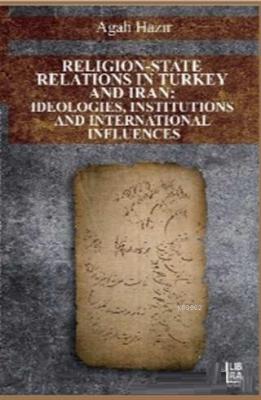9786052380789
567875

https://www.turkishbooks.com/books/religion-state-relations-in-turkey-and-iran-ideologies-institutions-and-international-influences-p567875.html
Religion-State Relations in Turkey and Iran: Ideologies, Institutions and International Influences
55.2
This book compares religion-state relations in Turkey and Iran by adopting a historical perspective. It explores the various historical trajectories, international developments and cultural elements that generated distinct religion-staterelations in these two national contexts. It argues that the main determinants of this relation derive from the varying degrees of institutionalisation of religious establishments. Historical analysis reveals that the Turkish state inherited a type of state tradition in which religion was strongly controlled and in corporated to the state structure. Conversely, in Iran, especially after the Safavid period, state tradition was marked by the relative autonomy of religious establishments from the state. The influence of international factors on religion-state dynamics is also analyzed. Direct international factors are found to have been more influential in the Iranian case whereas in the Turkish case indirect factors playeda more decisive role. This book also argues that it is misleading to point to differences between Shi'a and Sunni sects in an essentialist manner to explain the different paths that these two countries followed
This book compares religion-state relations in Turkey and Iran by adopting a historical perspective. It explores the various historical trajectories, international developments and cultural elements that generated distinct religion-staterelations in these two national contexts. It argues that the main determinants of this relation derive from the varying degrees of institutionalisation of religious establishments. Historical analysis reveals that the Turkish state inherited a type of state tradition in which religion was strongly controlled and in corporated to the state structure. Conversely, in Iran, especially after the Safavid period, state tradition was marked by the relative autonomy of religious establishments from the state. The influence of international factors on religion-state dynamics is also analyzed. Direct international factors are found to have been more influential in the Iranian case whereas in the Turkish case indirect factors playeda more decisive role. This book also argues that it is misleading to point to differences between Shi'a and Sunni sects in an essentialist manner to explain the different paths that these two countries followed
Yorumlar (0)
Yorum yaz
Bu kitabı henüz kimse eleştirmemiş.










